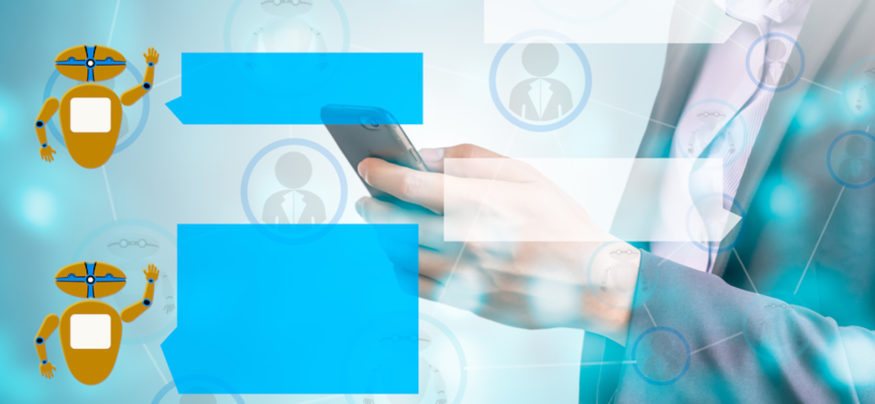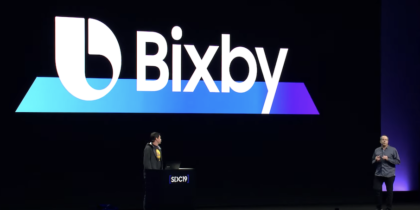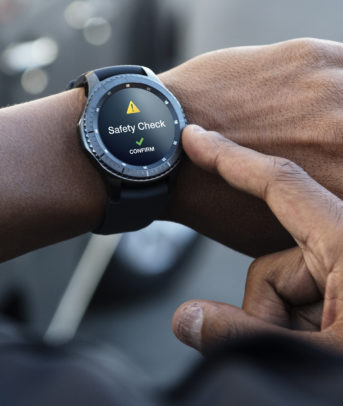In today’s highly digitized world, traditional hospitality services will no longer cut it. Modern consumer expectations are all about personalized experiences. This is driving more hospitality organizations to try bots: automated tools that manage repetitive tasks, from robots that deliver room service, to chatbots that respond to guests’ Facebook messages, to search bots that help guests find nearby restaurants. The future of robots in hospitality will be all about using guest data and situational cues to cater to guests’ needs in a way that feels, well, human.
Bots differ from simple machines and apps because they often gather data as they work and use cognitive technology or artificial intelligence to improve their suggestions and behaviors. Bots can help brands meet consumer expectations for higher levels of service because bots continuously learn from guest expectations — personally or in general — and use that knowledge to deliver the experiences consumers value. Bots also create the opportunity to shift labor to other tasks that fulfill heightened consumer expectations.
According to Hospitality Technology’s 2017 Lodging Study, 23 percent of hoteliers call robotics an emerging technology with future potential.
Hospitality Bots
Hospitality organizations are piloting or implementing bots in a number of ways to raise the bar in meeting consumer expectations. The LA Times reports that Savioke’s Relay room service bot is in service at 12 hotels across the country, and Hilton Worldwide has piloted Connie, which uses cognitive technology to learn and improve as it interacts with guests. Similarly, Maidbot, a robotics company, has created Rosie, a bot that safely cleans floors while housekeeping staff attend to other issues, cutting room cleaning time by 15 to 20 percent, according to Lodging Magazine.
At 12 U.K. properties, Edwardian Hotels London, a Radisson Blu brand, is rolling out Edward, an artificially intelligent chat bot that responds to guests’ queries, according to Hotel News Now. Additionally, startups such as Kore enable hotels to provide bots for personal travel assistance and virtual concierge.
Third parties are also taking on travel and hospitality. Bots like Cloe and Assist act as personal concierges for consumers, sometimes aggregating multiple tasks like booking rooms or making dinner reservations, as well as making brand selections or recommendations on the consumer’s behalf.
What does the future of hotel tech look like?
Here's a look at the top hotel tech trends of 2016, and what it means moving forward. Download Now
Bots as Disrupters
It’s the latter use of bots — substituting for the consumer to automate a task and make choices — that challenges hospitality companies as the technology becomes more pervasive.
Hospitality brands should aim to rise to the top of bot recommendations, just as they do now with search engine optimization. They must also respond to third-party bots that drive up their costs or disrupt the guest-brand relationship.
For example, just a fraction of global airline travelers are aware of their rights to compensation when airlines exceed certain parameters on flight delays, cancellations or overbooking. To address this issue, ClaimCompass has created a “claimbot” that automates the tedious process of filing a claim, even rating the user’s chance of success, which has the potential to significantly increase claim costs for airlines.
Online travel agencies such as Kayak, Skyscanner, Expedia.com and Cheapflights are also turning to bots to meet rising consumer expectations. Booking.com’s Booking Messages interface is a communication platform for customers and providers that initiates communications at the time of booking. While that satisfies the online travel agency (OTA)’s and hotel’s mutual goal of removing friction from guest experiences, it also detracts from the hotel’s goal to drive OTA guests to their own mobile platforms.
The Future of Robots
Travel is a hot market for bot startups, disrupting traditional approaches in every step of a guests’s trip. That puts pressure on hospitality and travel companies on two fronts: They must learn to respond to and engage with new bot partners, while also developing their own bots to satisfy rising consumer expectations for convenience, personalization and a frictionless brand experience.
Hotels need to be at the forefront of technology innovation to keep up with consumer demand. Visit our hospitality solutions page for more ideas on how to use technology to streamline operations and enhance the guest experience.








